New Products
-
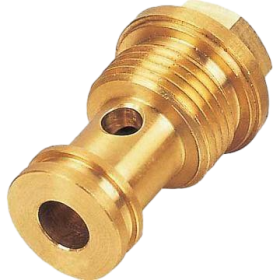
Custom Turn-Mill Combination brass parts
-
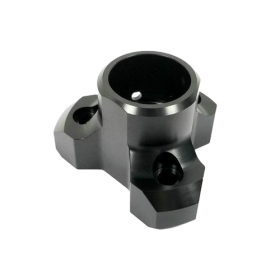
Custom Turn-Mill Combination parts
-
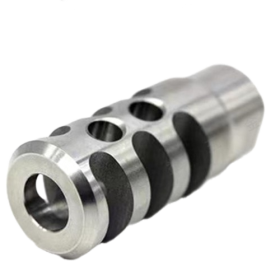
Precision CNC Turning Parts Stainless Steel shaft accessories
-
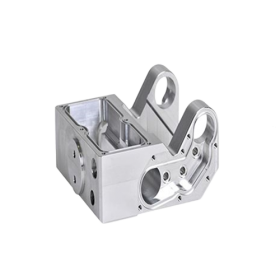
Custom CNC Milling Automated Machinery and Equipment Parts
-
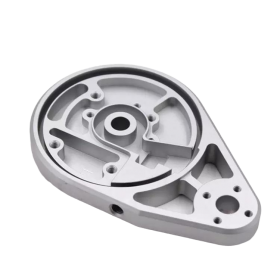
OEM/ODM Custom High Precision Metal CNC Machining/Milling/Turning Service CNC Turning Part
-
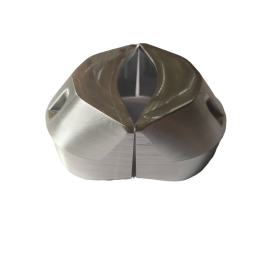
Precision CNC Milling Robotic Arm parts
Comprehensive Guide to CNC Machining Material Selection
In the CNC (Computer Numerical Control) machining industry, selecting the appropriate material is crucial to the success of any project. The choice of material impacts machining precision, efficiency, durability, and cost. This guide provides an in-depth exploration of the types of materials used in CNC machining, factors to consider during selection, and how material properties influence the machining process. By incorporating industry-specific keywords and addressing client needs, this guide aims to attract industrial clients seeking precision CNC machining services.
Types of Materials Used in CNC Machining
Metals:
l Aluminum
Known for its lightweight properties, excellent machinability, and corrosion resistance, aluminum alloys like 6061 and 7075 are ideal for applications in aerospace, automotive, and consumer electronics.
l Steel
Available in various grades, steel offers exceptional strength and durability, making it a preferred choice for industrial machinery, construction, and automotive components.
l Stainless Steel
Renowned for its corrosion resistance and high strength, stainless steel is extensively used in medical devices, food processing equipment, and marine applications.
l Titanium
Titanium is lightweight yet strong, with excellent biocompatibility, making it suitable for aerospace engineering, medical implants, and high-performance components.
Brass
Brass combines excellent machinability with thermal conductivity, making it perfect for gears, fittings, and decorative hardware.
Plastics:
l ABS (Acrylonitrile Butadiene Styrene)
ABS is valued for its toughness and dimensional stability, often used in automotive parts, electronic housings, and consumer products.
l Delrin (POM)
Delrin offers high stiffness, low friction, and excellent wear resistance, ideal for gears, bearings, and precision mechanical components.
l Nylon
With its high mechanical strength and chemical stability, nylon is widely used in fasteners, insulators, and pulley wheels.
l PEEK (Polyether Ether Ketone)
A high-performance plastic with excellent thermal and chemical resistance, PEEK is commonly used in aerospace and medical applications.
Factors to Consider in CNC Machining Material Selection
1. Mechanical Properties
· Strength and Durability: Materials like stainless steel and titanium excel in tensile strength and wear resistance.
· Elasticity: Plastics like polycarbonate provide flexibility, making them suitable for stress-bearing applications.
2. Thermal Properties
· Operating Temperature: High-temperature plastics like PEEK are optimal for extreme environments.
· Thermal Expansion: Aluminum’s low expansion coefficient ensures dimensional stability in temperature-sensitive projects.
3. Chemical Resistance
Materials like PTFE and stainless steel withstand harsh chemical exposures, crucial for industrial and marine environments.
4. Electrical Properties
For electronic components, materials with high dielectric strength, such as PVC and polycarbonate, ensure reliable insulation.
5. Cost and Availability
Balancing performance with budget constraints is essential. Metals like aluminum and mild steel are cost-effective for large-scale production.
How Material Properties Impact CNC Machining
Material properties influence key machining parameters, including:
· Cutting Speed and Tool Wear: Harder materials like titanium require slower speeds and carbide tools to minimize wear.
· Surface Finish: Softer materials, such as brass, allow for higher cutting speeds and superior finishes.
· Thermal Conductivity: Metals like copper dissipate heat effectively, improving dimensional accuracy.
CNC Milling with Different Materials
CNC milling adapts to material properties by modifying cutting speeds, tooling, and cooling methods. For example:
· Metals: Carbide tools and coolant are essential for machining harder metals like steel.
· Plastics: Lower cutting speeds prevent melting and deformation.
· Composites: Diamond-coated tools maintain structural integrity while minimizing delamination.
Why Material Selection Matters in Precision CNC Machining
Choosing the right material ensures:
1. Optimal Machinability: Reducing tool wear and machining time.
2. Enhanced Product Performance: Meeting specific application requirements, such as corrosion resistance or thermal stability.
3. Cost Efficiency: Minimizing waste and maximizing production outcomes.
Attracting Industrial Clients: Bomei's Expertise in CNC Machining
At Bomei Machining, we specialize in precision CNC machining, offering custom solutions tailored to your project’s material and performance requirements. With over 10 years of expertise, we provide:
· High Precision Manufacturing: Tolerance of ±0.01mm for critical components.
· Material Variety: Metals (aluminum, steel, brass) and plastics (ABS, Delrin, PEEK).
· Comprehensive Support: From design consultation to after-sales service.
Contact us today to learn how we can optimize your CNC machining projects with the perfect material selection.


 Evan Xiao
Evan Xiao